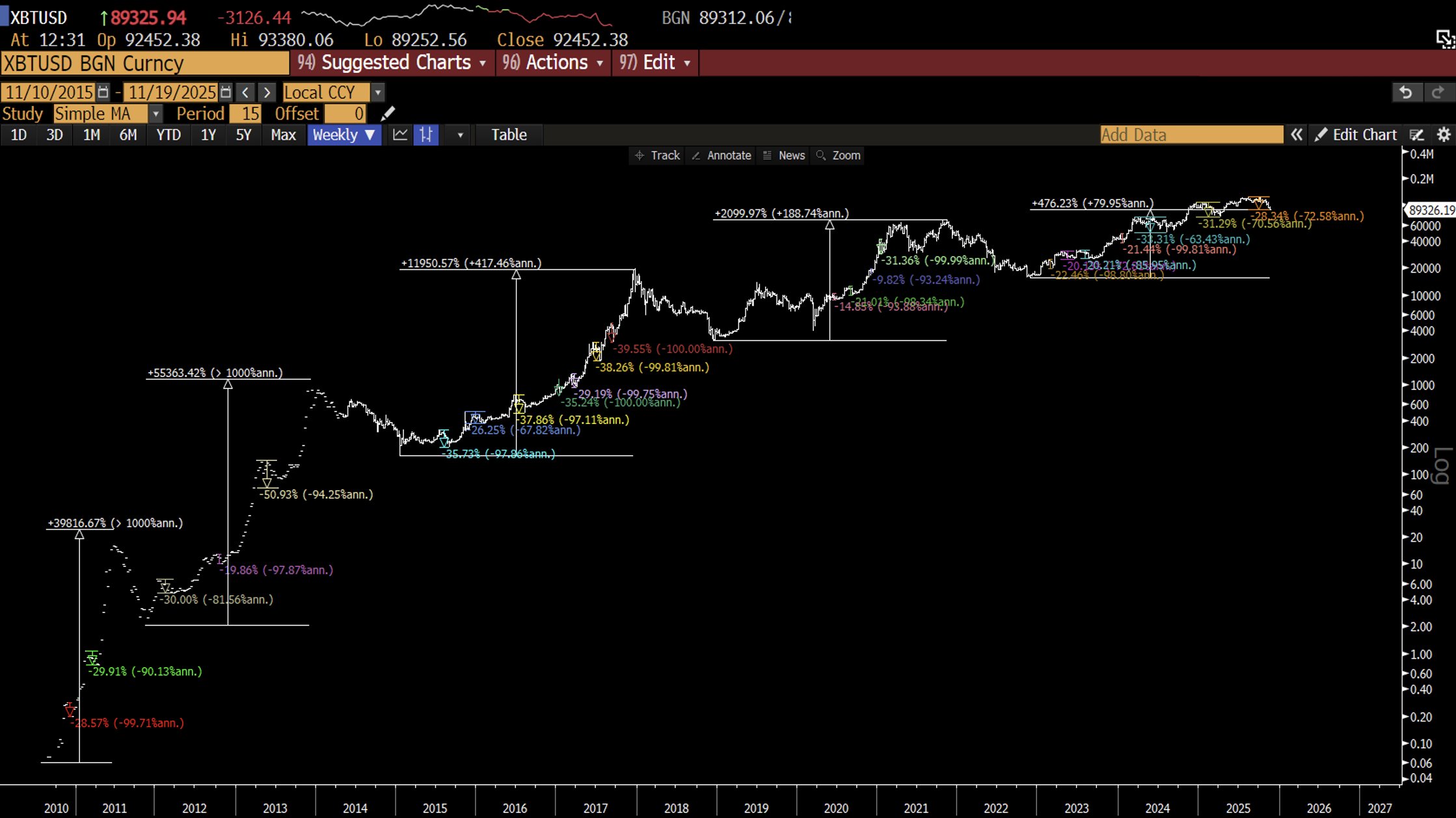
Disclaimer: The opinions expressed by our writers are their own and do not represent the views of U.Today. The financial and market information provided on U.Today is intended for informational purposes only. U.Today is not liable for any financial losses incurred while trading cryptocurrencies. Conduct your own research by contacting financial experts before making any investment decisions. We believe that all content is accurate as of the date of publication, but certain offers mentioned may no longer be available.
Raoul Pal had a pretty simple take on the latest Bitcoin drop as he compared it to what has happened loads of times before, and for him it is a bit of a pain, but not something out of the ordinary for the cryptocurrency.
For the former Goldman Sachs macro chief, the main point is that Bitcoin's biggest dips are usually caused by the same mix of unwinds, stressed market-maker books, thin liquidity and traders being forced out of positions long before anything changes on the macro side.

He thinks what's happening now fits that same pattern pretty closely. The numbers show why Pal treats this as a routine cycle reset instead of something structurally new. Back in 2021, Bitcoin fell 56% in four weeks, Ethereum lost 62% and Solana dropped 68%, but all three bounced back hard once the forced selling ended.
Bitcoin's past maps future for Raoul Pal
In 2019-2020, Bitcoin fell 72% even though the overall trend was bullish. This was partly due to the impact of the pandemic, but the long-term trend remained positive. Even in the 2016-2017 cycle, there were seven separate Bitcoin drops of more than 30%, and altcoins were hit even harder, but the overall structure continued to rise.
You can see all of this on the Bloomberg log chart, where large collapses shrink into brief interruptions.
Pal says he has seen this before: the market's oversold, the price action is unstable and liquidity is thin, but there is nothing to suggest the long-term trend has reversed.
These are the reasons behind Pal’s stance: the drop fits the same kind of -30%, -56% and -72% cycle resets that Bitcoin has already shown, the macro backdrop has not changed, the pressure is coming from rapid unwinds and thin liquidity — not fundamentals — the long-term chart still shows oversold conditions that usually resolve, and his framework relies on multiyear trends that have historically absorbed even the hardest drawdowns.


 Dan Burgin
Dan Burgin Vladislav Sopov
Vladislav Sopov